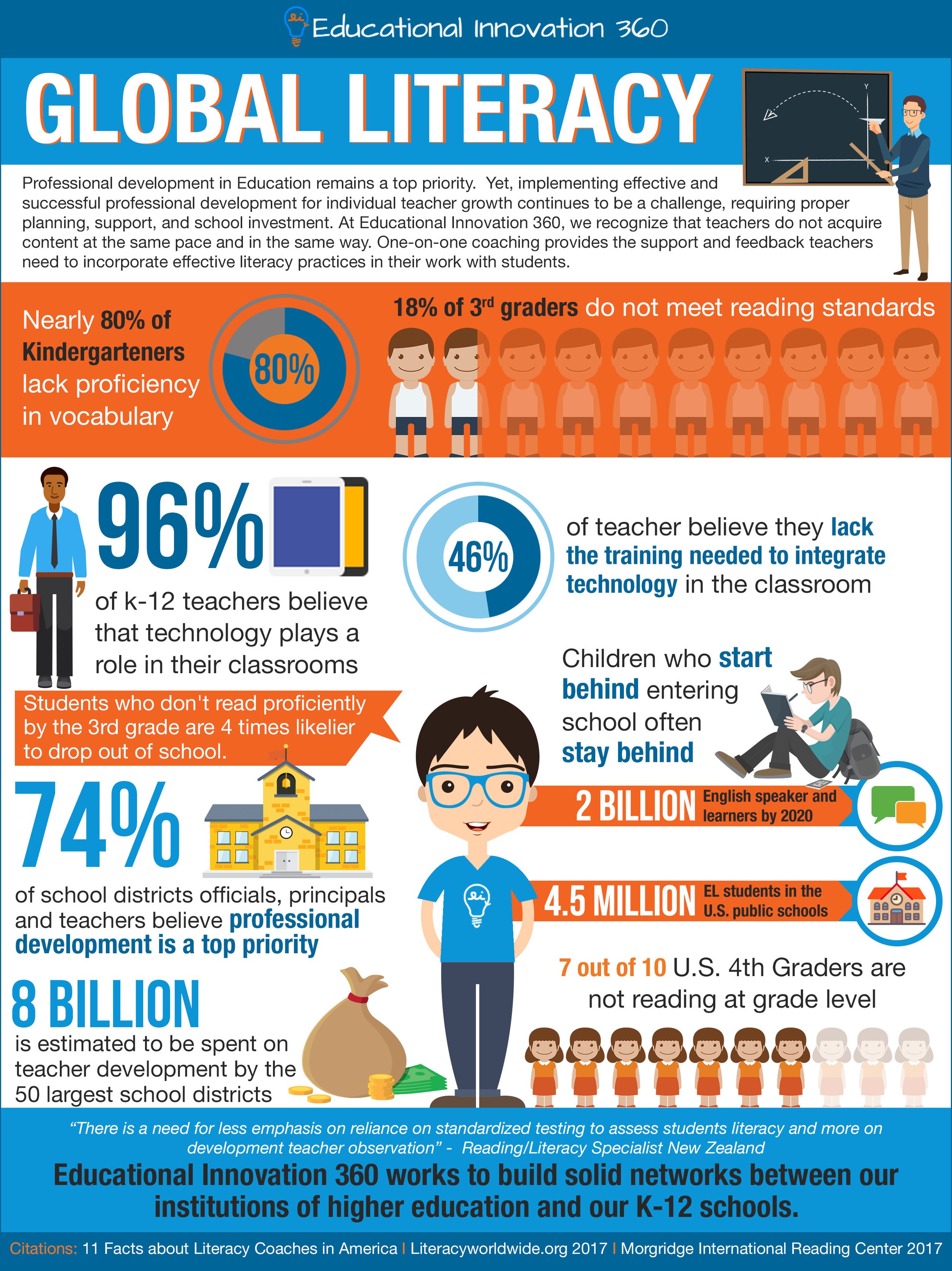Frequent Feedback Prevents New Teacher Failure
Creating and implementing a plan to practice a set of individual skills is the fastest way for a teacher to improve their teaching. Once a group of related skills is broken down into their smallest part, the teacher can isolate each part of the skill and focus on expediting student achievement. This will all teachers to improve much faster than if they were to practice the entire skill all at once. This concept takes strategic practice and a keen eye for one skill at a time as well as one bite-sized chunk of this skill for teacher success.
Educational Innovation 360, Global Literacy push to help and support 1 million teachers.
So how can teachers improve?
Skill building is an area we pride ourselves on at Educational Innovation 360. Teachers do not acquire the same or at the same pace, so we develop a skill-building plan to review how the skill is improving and to see if there is a need to return to the practice stage. This is my favorite, most important part of the skill-building process. We know that in order for teachers to be successful both the coach and teacher must review their practice using role-play, modeling, or scripting- then doing in the classroom. When we take this particular approach we look for automaticity in the classroom. Once a teacher has reached mastery, we proceed on to the next skill.
How do you give feedback?
So how does a teacher get the feedback they need to determine how well their practice is going and if they should continue practicing or move on? We know that once a teacher has a certified Instructional coach from our team of ecoaches to provide them with feedback on their skill to improvement process bi-weekly they thrive. What we have noticed in traditional settings is that new teachers do not get enough feedback. In a recently surveyed school, multiple teachers stated, “Sometimes our coach would observe and debrief the lesson with me but she was so busy with other duties, I only was able to meet with her 3 times last year.” Is this typical at your school? We have studied this practice for years, and know effective ways to communicate with teachers and give them accurate feedback is to be as specific as possible. When instructional coaches are general in feedback and not frequently visiting classrooms it does not work when someone is trying to improve a designated skill. The more accurate and purposeful feedback a person can provide the teacher, the faster the teacher will be able to improve. When providing feedback on a skill that still needs work, the person giving feedback should also try to think of different ways the teacher could improve the skill (Chalk, 2021).
Mini-Goals for Teacher Success
Once the teacher has ongoing, effective feedback, together we determine our next steps. Although this is a collaborative process many times, the coach has identified the next skill based on teacher need. Thoughout the journey teachers are provided immediate resources, models of the lesson, and the latest research on current pracitces. We know new teachers struggle with these choices so making this decision is easier with our goal document that expresses how each skill should work once it is improved. If the goal is not met, the teacher and the coach can practice what they will need before they can move on (Graduate Programs for Educators, 2020).
References
How to give and receive effective feedback to teachers. Chalk. (2021, November 17). Retrieved February 28, 2022, from https://www.chalk.com/resources/effective-feedback/
How a new teacher can improve using evaluation feedback. Graduate Programs for Educators. (2020, October 1). Retrieved February 28, 2022, from https://www.graduateprogram.org/2020/10/how-a-new-teacher-can-improve-using-evaluation-feedback/

